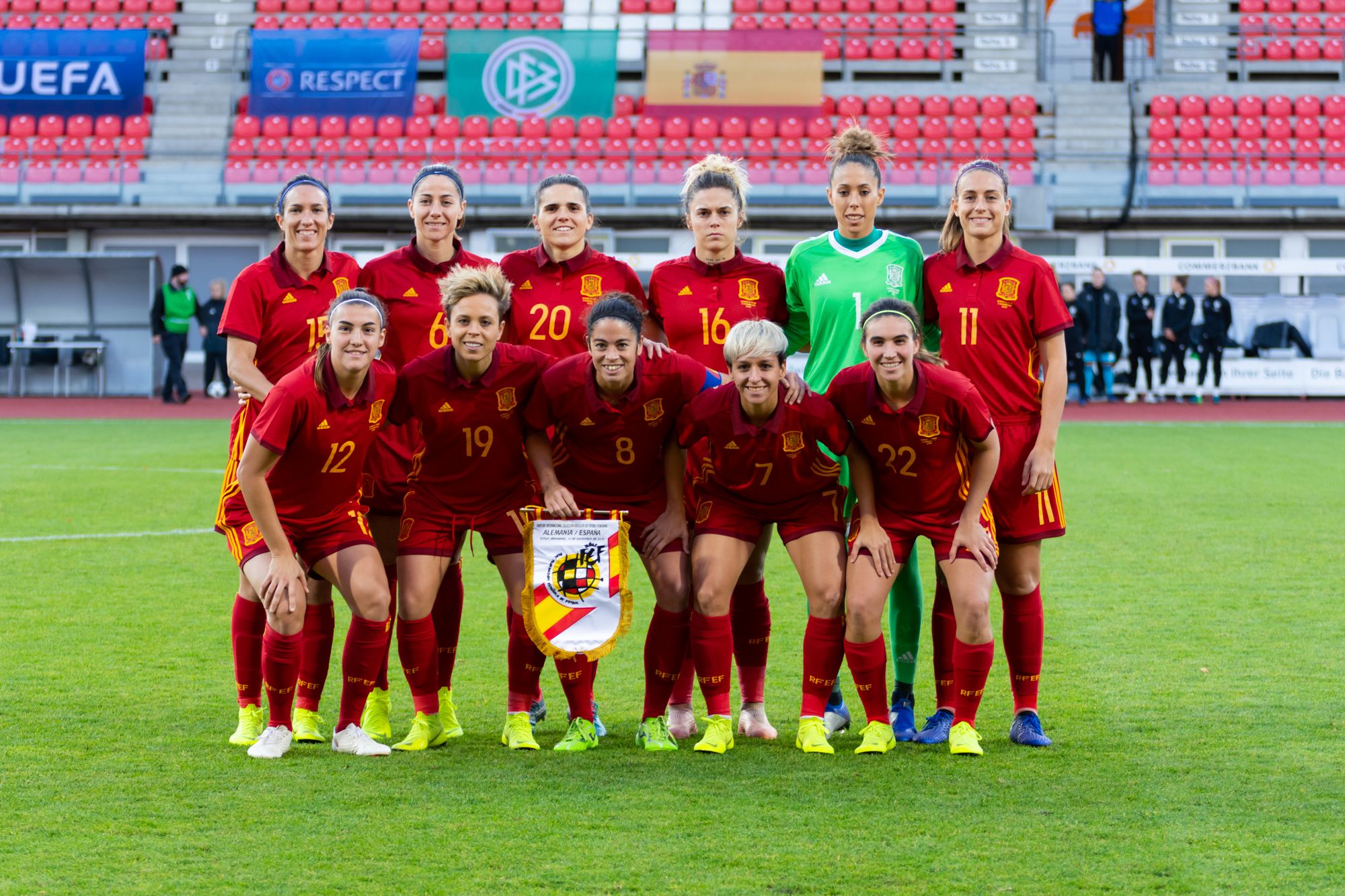Front and Center: Harmful Working Conditions in Women’s Soccer

As all women’s sports continue to see meteoric rises, the athletes continue to fight tooth and nail to create fair and safe working conditions. Women’s football (soccer) in particular has seen two parallel storylines unfold: extreme growth and investment in the game and increasing revelations of player mistreatment and unequal working conditions relative to the male game. This growing awareness has been accompanied by calls to reduce inequity and create healthy playing environments. Most recently, the Spanish National Team — a rising women’s soccer superpower and home to Alexia Putellas, the winner of last year’s Ballon d’Or, the most prestigious individual award in football — joined together to demand better from the Royal Spanish Football Federation (RFEF).
Throughout Thursday, Sept. 22, the RFEF received nearly identical emails from 15 of its women’s national team members, including many of the team’s stars, with a resounding message: The current state of the team is toxic and negatively impacts their physical and mental health.
The news broke in a RFEF statement, and players have since refuted its accuracy. The RFEF rejected the calls to change the coaching staff in a firm statement: “RFEF is not going to allow the players to question the continuity of the national coach and his coaching staff, since making those decisions does not fall within their powers. The Federation will not admit any type of pressure from any player when adopting sports measures. These types of maneuvers are far from exemplary and outside the values of football and sport and are harmful.”
The organization also challenged the players who sent the emails. “[T]his fact has gone from being a sporting issue to a dignity issue,” the statement read. “It is an unprecedented situation in the history of football, both male and female, in Spain and worldwide.”
The players were told they could only return to the national team if “they accept their mistake and ask for forgiveness.” The federation also claimed that if the players refuse a call-up, they will face between two and five years of disqualification from national team consideration.
The day after the release of the strongly worded RFEF statement, the players explained that the media and the RFEF had mischaracterized their initial email — they had not resigned, nor demanded their coach step down, but rather expressed that as long as the conditions were harming their mental and physical health, they felt they were not in a position to be eligible for selection. These two contrasting messages revealed and intensified the tension and mistrust the players feel towards their Federation.
One Spanish football reporter, Alex Ibaceta, tweeted the list of confirmed players: Ainhoa Vicente, Patri Guijarro, Sandra Paños, Amaiur Sarriegui, Leila Ouahabi, Lucia García, Mapi León, Ona Batlle, Laia Aleixandri, Claudia Pina, Aitana Bonmatí, Mariona Caldentey, Lola Gallardo, Nerea Izaguirre, and Andrea Pereira. Six of these 15 athletes play for Baracelona, the runners-up in the 2021-22 UEFA Women’s Champions League. Aitana Bonmatí received a 2022 Ballon d’Or nomination. Reigning Ballon d’Or winner Alexia Putellas is currently out for the season with a torn ACL that she picked up when training for the 2022 European Championships this summer with the national team, and thus cannot be called up. She tweeted in support of her 15 teammates on Friday. Other major names in women’s soccer around the world shared their support for the players, including recent Presidential Medal of Freedom recipient and U.S. Women’s National Team (USWNT) forward Megan Rapinoe, Former English National Team Star and Current National Women’s Soccer League (NWSL) Head Coach Casey Stoney, and the most-followed female footballer in the world, American forward Alex Morgan.
While the RFEF claims this situation is unprecedented, this is not the first time that Spanish National Team players have spoken up about their mistreatment. After qualifying for their first World Cup in 2015 and only earning one point during the competition, the team issued a collective statement calling for the end of then-coach Ignacia Quereda’s 27-year reign as head coach. Quereda did not bring Spain’s 2015 leading scorer, Laura Del Rio, to the World Cup due to a feud between them, and also referred to his players as “chavalitas” (immature girls) and “niñas” (little girls) on multiple occasions.
The RFEF eventually did fire Quereda and the team’s results improved quickly, with Spain skyrocketing to 8th in the FIFA rankings.
As national and club football programs have revealed around the world, on-field success is not a marker of equal, or even just, treatment. Women’s national teams continue to distrust their federations and club teams after decades of mistreatment, neglect, and abuse. The kickoff of Spain’s women’s league was delayed a week after the league’s referees went on strike due to unfair treatment and pay. The league’s entirely-female referee team requested to be paid the same amount as the referees in Spain’s men’s second division; while they did see their wages increase, they are still not near this original request. Many National Women’s Soccer clubs continue to highlight abuse and unequal treatment by coaching staffs, and the U.S. Soccer report into the abuse and mistreatment, led by former United States Deputy Attorney General Sally Yates, is expected to be released in early October. But this is only the first step. Footballers around the world are continuing to raise the bar for collective action and are sending an important message: female athletes deserve better. We must join together and help them get it.
Front and Center would like to conclude by calling attention to the fact that Britney Griner has been wrongfully detained in Russia for 223 days. Bring her home.